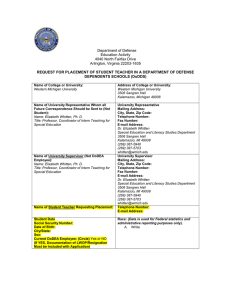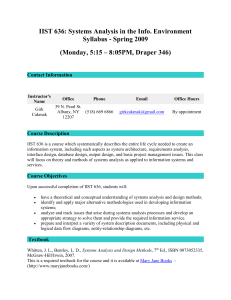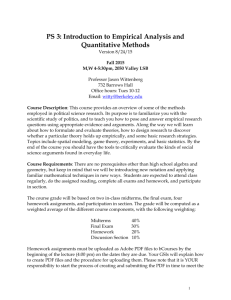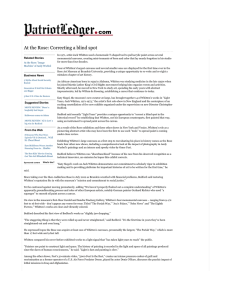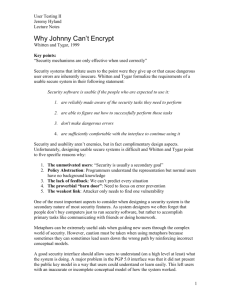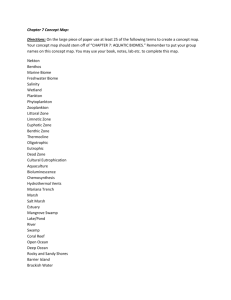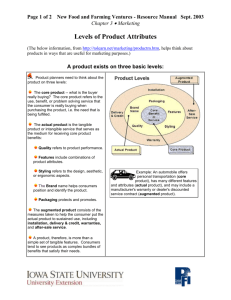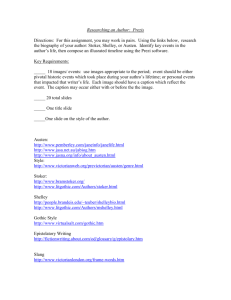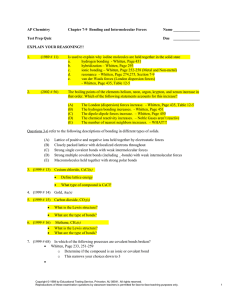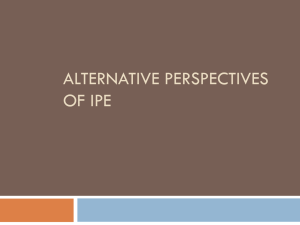POLITICS OF OIL
advertisement
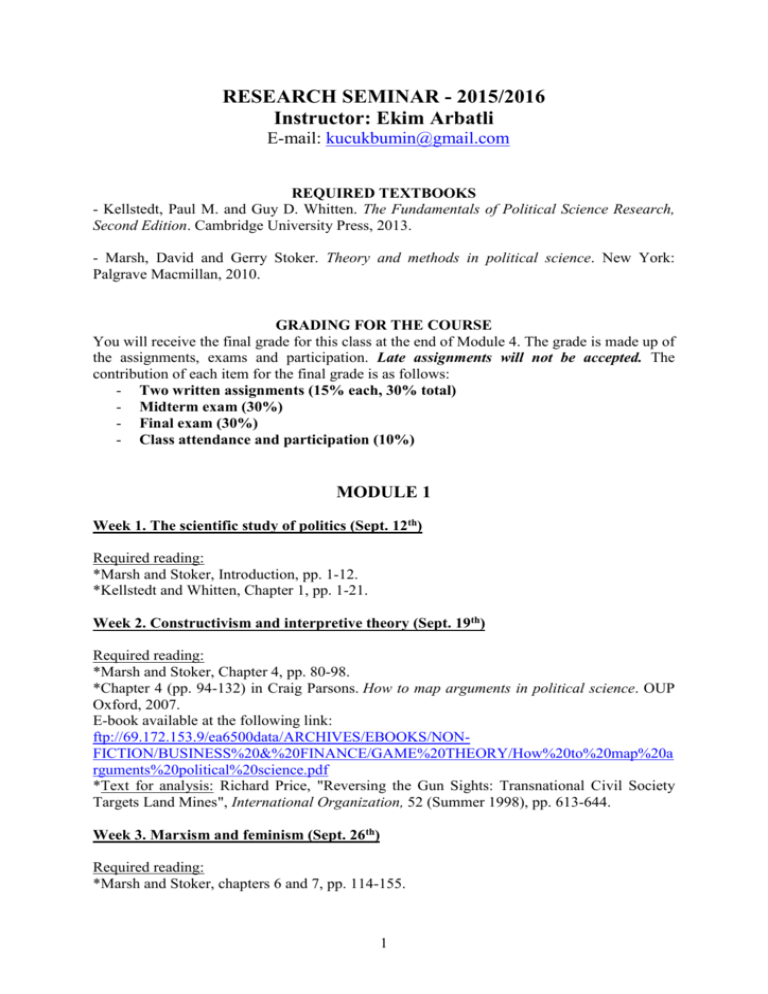
RESEARCH SEMINAR - 2015/2016 Instructor: Ekim Arbatli E-mail: kucukbumin@gmail.com REQUIRED TEXTBOOKS - Kellstedt, Paul M. and Guy D. Whitten. The Fundamentals of Political Science Research, Second Edition. Cambridge University Press, 2013. - Marsh, David and Gerry Stoker. Theory and methods in political science. New York: Palgrave Macmillan, 2010. GRADING FOR THE COURSE You will receive the final grade for this class at the end of Module 4. The grade is made up of the assignments, exams and participation. Late assignments will not be accepted. The contribution of each item for the final grade is as follows: - Two written assignments (15% each, 30% total) - Midterm exam (30%) - Final exam (30%) - Class attendance and participation (10%) MODULE 1 Week 1. The scientific study of politics (Sept. 12th) Required reading: *Marsh and Stoker, Introduction, pp. 1-12. *Kellstedt and Whitten, Chapter 1, pp. 1-21. Week 2. Constructivism and interpretive theory (Sept. 19th) Required reading: *Marsh and Stoker, Chapter 4, pp. 80-98. *Chapter 4 (pp. 94-132) in Craig Parsons. How to map arguments in political science. OUP Oxford, 2007. E-book available at the following link: ftp://69.172.153.9/ea6500data/ARCHIVES/EBOOKS/NONFICTION/BUSINESS%20&%20FINANCE/GAME%20THEORY/How%20to%20map%20a rguments%20political%20science.pdf *Text for analysis: Richard Price, "Reversing the Gun Sights: Transnational Civil Society Targets Land Mines", International Organization, 52 (Summer 1998), pp. 613-644. Week 3. Marxism and feminism (Sept. 26th) Required reading: *Marsh and Stoker, chapters 6 and 7, pp. 114-155. 1 *Bryson, Valerie, “Marxism and feminism: can the ‘unhappy marriage’ be saved?”, Journal of Political Ideologies, 9:1 (February 2004), pp. 13-30. *Text for analysis (Marxism): Kotz, David M. "The financial and economic crisis of 2008: A systemic crisis of neoliberal capitalism." Review of Radical Political Economics (2009). *Text for analysis (Feminism): Chapter 12 in Valerie Bryson, “Patriarchy: the public sphere”, Feminist Political Theory: An Introduction. Palgrave Macmillan (2003). E-book available at the following link: http://wiki.zirve.edu.tr/sandbox/groups/economicsandadministrativesciences/wiki/37a80/attac hments/c992a/book.pdf Week 4. Behavioralism (Oct. 3rd) Required reading: *Marsh and Stoker, chapter 1, pp. 23-41. *Adcock, “Interpreting Behavioralism”, In Adcock, Robert and Mark Bevir. Modern Political Science: Anglo-American Exchanges since 1880. Princeton: Princeton University Press, 2007, pp. 180-193. *David Sanders, “Behavioral Analysis,” Theory and Methods in Political Science (Palgrave, 2002) *Game at Seminar. Grant, J. Tobin. (2004). Playing politics. New York: W.W. Norton. (Textbook for Instructor’s Usage Only) Week 5. Rational choice (Oct. 10th) Required reading: *Marsh and Stoker, chapter 2, pp. 42-59. *McCubbins, Mathew D., and Michael F. Thies, "Rationality and the Foundations of Positive Political Theory", Leviathan, 19 (Autumn 1996), pp. 7-32. *Texts for analysis: Alchian, Arman A., and Harold Demsetz. 1973. "The Property Rights Paradigm." Journal of Economic History 33(11): 16-27. Olson, Mancur, “Dictatorship, Democracy and Development”, American Political Science Review, 87 (1996), pp. 567-76. Week 6. Institutionalism (Oct. 17th) Required reading: *Marsh and Stoker, chapter 3, pp. 60-79. *Hall, Peter A. and Rosemary C. R. Taylor, “Political Science and Three New Institutionalisms”, Political Studies, 44:5 (December 1996), pp. 936-957. *Texts for analysis: Heller, William B. 2007. "Divided Politics: Bicameralism, Parties, and Policy in Democratic Legislatures." Annual Review of Political Science 10: 245-269. Greif, Avner, Paul R. Milgrom, and Barry R. Weingast. 1994. "Coordination, Commitment, and Enforcement: The Case of the Merchant Guild." In Journal of Political Economy 102 (4):745-776. Written assignment 1 (15%) – the deadline will be announced by the instructor. 2 MODULE 2 Week 7. Experiments in political science Required reading: *Rebecca B. Morton and Kenneth C. Williams. “Experimentation in Political Science”. Chapter 13 in The Oxford Handbook of Political Methodology, ed. by Janet M. BoxSteffensmeier, Henry E. Brady, and David Collier. 2009. *Alan S. Gerber and Donald P. Green. “Field Experiments and Natural Experiments” Chapter 15 in The Oxford Handbook of Political Methodology, ed. by Janet M. Box-Steffensmeier, Henry E. Brady, and David Collier. 2009. *Text for analysis: Lazarev Y. A., Sobolev A. S., Soboleva I. V., Sokolov B. Trial by Fire: A Natural Disaster's Impact on Support for the Authorities in Rural Russia, World Politics. 2014. Vol. 66, No. 4. Week 8. Working with big data * Leilei Zhu. 2010. Computational Political Science Literature Survey Working Paper. *Grimmer J, Stewart BM. Text as Data: The Promise and Pitfalls of Automatic Content Analysis Methods for Political Texts. Political Analysis. 2013; 21(3): 267- 297. *Text for analysis: King, Gary, Jennifer Pan, and Margaret E Roberts. 2013. How Censorship in China Allows Government Criticism but Silences Collective Expression. American Political Science Review 107, no. 2 (May): 1-18. Week 9. Qualitative methods Required reading: *Mahoney, James and Goertz, Gary (2006). "A Tale of Two Cultures: Contrasting Quantitative and Qualitative Research", Political Analysis, Vol. 14, pp. 227-249. *Uwe Flick. 2009. Chapter 12 How to Design Qualitative Research: An Overview in Introduction to Research Design. *Text for analysis: Collier, David and Elman, Colin, Qualitative and Multi-Method Research: Organizations, Publication, and Reflections on Integration (2008). Concepts and method in the social science: the tradition of Giovanni Sartori, pp. 269-288, David Collier, John Gerring, eds., Routledge, 2009. Week 10. Selecting cases and observations Required reading: *King, Keohane and Verba, Designing Social Inquiry, chapter 4, pp. 115-149. *Barbara Geddes, “How the Cases you Choose Affect the Answers You Get: Selection Bias in Comparative Politics,” Political Analysis 2, 1990: 131-150. Week 11. Midterm exam (30%) - the date will be announced by the instructor. 3 MODULE 3 Week 12. Theory building Required reading: *The “language of research” section in the following website offers a good introduction to basic concepts of research: http://www.socialresearchmethods.net/kb/language.php *Kellstedt and Whitten, pp. 24-47. Week 13. Evaluating causal relationships and research design Required reading: *Kellstedt and Whitten, pp. 51-90. Week 14. Evaluating measurement and variations Required reading: *Kellstedt and Whitten, pp. 92-126. Week 15. Probability and statistical inference, bivariate hypothesis testing Required reading: *Kellstedt and Whitten, pp. 129-168. Written assignment 2 (15%) – the deadline will be announced by the instructor. MODULE 4 Week 16. Bivariate regression models Required reading: *Kellstedt and Whitten, pp. 171-195. Week 17. Multiple regression: The basics Required reading: *Kellstedt and Whitten, pp. 197-218. Week 18. Multiple regression: Model specification Required reading: *Kellstedt and Whitten, pp. 220-245. Week 19. Limited dependent variables and logistic regression Required reading: *Kellstedt and Whitten, pp. 247-270. Week 20. Final exam (30%) – the date will be announced by the instructor. 4
